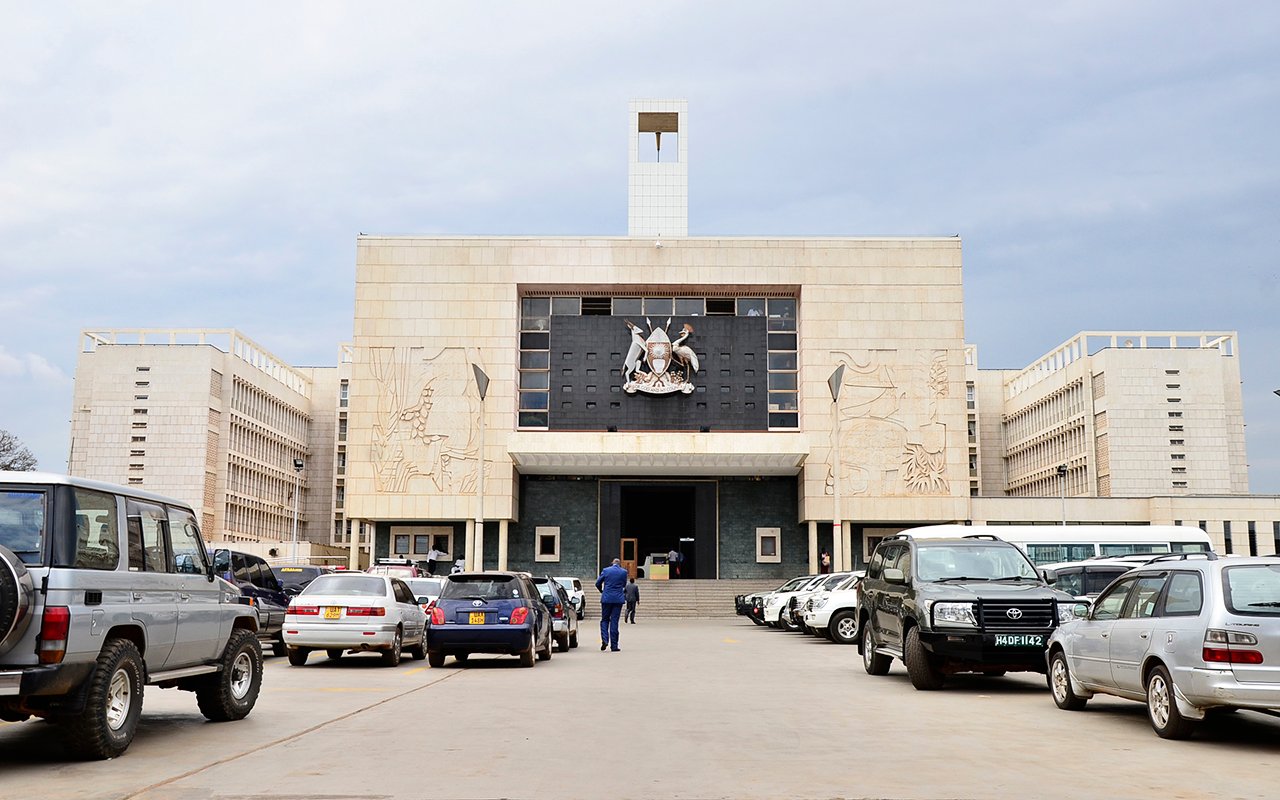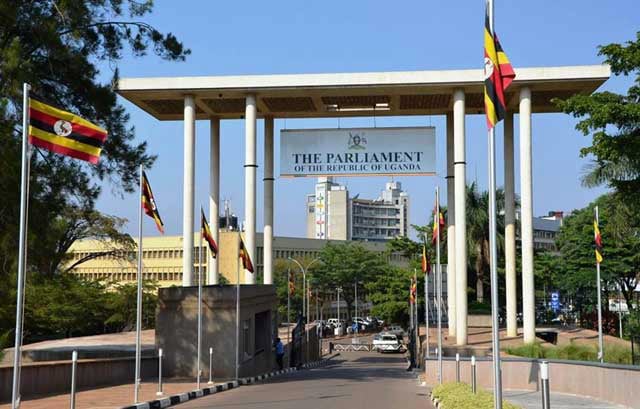Prime
Plan to cut MPs’ budget by 50% triggers outrage

State Minister for Finance Henry Musasizi during the plenary session at Parliament on March 28, 2024. PHOTO/DAVID LUBOWA
What you need to know:
- The House is spending Shs945.5b this current financial year, up by Shs30b from the previous year.
A proposal by the Executive to halve Parliament budget yesterday sparked outrage, with Speaker Anita Among slamming the move as calculated to undermine the institution and members’ welfare.
The Parliamentary Commission’s expenditure estimate for the next financial year, which Finance Minister Matia Kasaija reportedly asked Cabinet on Monday to slash by 50 percent, remains under wraps.
The House is spending Shs945.5b this current financial year, up by Shs30b from the previous year.
In a sitting yesterday morning, Bukanga Member of Parliament Nathan Byanyima, without disclosing the source of his information, said he had seen a document containing a proposal to slash House budget and questioned the proposer’s powers to do so.
“There is a rule that we must respect each other [Executive and Parliament]. We have been demeaned to nothing,” he submitted, opening the arena for Speaker Among’s rejoinder.
“[A] deduction of [our budget by] 50 percent, shall we be paid salary?” she asked, adding, [Ministry of] Finance, you even have the courtesy to put it in bold on a statutory vote that Parliament should not get money!”
The verbal assault prompted government principals, among them the Government Chief Whip Hamson Obua and State Finance Minister for General Duties Henry Musasizi, to scramble to do damage control during yesterday’s proceedings.
This followed explicit claims in the House by MP Byanyima that Mr Ramathan Ggoobi, the Finance ministry’s permanent secretary and secretary to the Treasury (PSST), during an interface with members of an unnamed committee of Parliament discounted the role of legislators in the budgeting process.
“The issue arose when we were interrogating government’s handling of consolidated accounts…he (Ggoobi) accused Parliament and lawmakers, saying that the distortion from the Budget Framework Paper and the actual budget is always a distortion of lawmakers. That is when he said, ‘you don’t even enjoy those powers to do what you are doing’,” the lawmaker submitted.
The PS was unavailable yesterday to comment for this article, but his political supervisor Musasizi in an apology on the floor of Parliament, exhorted the legislators to disregard the statements linked to the ministry’s topmost technocrat.
In a talk show on Nile Broadcasting Services (NBS) Television yesterday, Mr Ggoobi spoke to smoothen up things, saying principals of the three arms of government would agree on the budgeting prepared by the Executive and over which he said MPs make recommendations, including withholding appropriation until the money is moved to where they desire.
“Parliament is a very powerful institution; its job is to appropriate the budget and in appropriation, it can tell the government, don’t spend the money here ... but now sometimes there has been concern on why Parliament cut money and moved it to another area...,” he said.
He disclosed that the government, as it promised in the current budget, targets in the Shs58t budget for 2024/25 financial year to cut consumptive spending on workshops, travels, and cars.
Minister Musasazi tabled the revenue and expenditure proposals yesterday for consideration by the House, and did not comment on the proposed cut of Parliament budget.
The idea to chop the budget comes in the wake of intense scrutiny of Parliament following revelations of its alleged lavish spending and nepotism in staff hiring.
Activists in a campaign on X, formerly Twitter, under the hashtag UgandaParliamentExhibition, shared leaked documents they said was printed off the government’s Integrated Financial Management Information System (IFMIS), showing Parliament Speaker Among spent several billions of shillings in donations passed through private bank accounts of subordinate staff.
The campaign exposed questionable allowance payout to legislators for overseas and inland travels, some of which appeared not to have been taken or lasted for few days than claimed.
Speaker Among in her public comments on the matter did not address the specific disclosures and first linked the campaign to homosexual sponsors abroad angry over Uganda’s enactment of an anti-gay law under her stewardship. Two days later, at the opening of her teaching hospital in her Bukedea constituency said she was being slandered by an unnamed predecessor plotting a return the country’s third most important office.
In interviews on the potential showdown between the Executive and Legislature over money, legal minds, citing Article 155(3) of the Constitution, noted that neither the President nor any person or entity has power to slash the Parliament budget.
The said provision requires the President, upon receipt of the budget of any self-accounting department, commission or organ of government, which is what the Parliamentary Commission is, to present it before Parliament “without revision, but with any recommendation that the government may have on [the budget]”.
Mr Wandera Ogalo, a former legislator who moved a Private Member’s Bill that birthed the Parliamentary Commission, said the budget of the House is negotiated between the President and the Speaker.
“If they fail to agree, then the President places his comments on the budget and the final arbiter of that disagreement is plenary [sitting of the whole House],” he said, adding, “Parliament is in a stronger position and can say ‘if you do not agree with us, we will also look at your budget’”.
He, however, cautioned lawmakers to take concerns of the Executive on money matters “seriously”.
“If they (lawmakers) use that leverage to suffocate the Executive, it is not good statesmanship,” he added.
Under Uganda’s Constitution, it is the President who causes the budget to run the nation each year to be prepared and although Parliament is empowered to make appropriations based on the proposals by the Executive, it cannot revise its own pay or charge anything on the Consolidated Fund unless through a Bill presented on behalf of the government.
President Museveni has not publicly spoken about the proposal to halve the allocations to Parliament in the new financial year, although he reportedly chaired the Monday Cabinet meeting where Finance Minister Kasaija reportedly first tabled the proposal.
Shadow Attorney General, Mr Wilfred Niwagaba, yesterday was optimistic Parliament and the Executive will harmonise the differences and agree on the allocations “within the resource envelope”.
His comments dovetailed with assurances by Finance ministry Spokesman Jim Mugunga for calm as the budget process is still ongoing.
“We have the mandate to mobilise resources, look at the resource envelope and advise on how best that resource envelope can be spent to meet the priorities of the entire government,” he said.
Report by Elizabeth Kamurungi, Arthur Arnold Wadero, Busein Samilu & Peter Sserugo.




